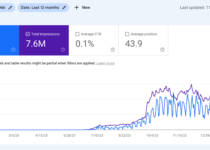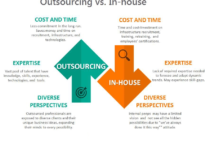Paid Search Intelligence Is More Than Data, It’s Your Competitive Edge
How Understanding Buyer Behavior Can Help You Win the Entire Purchase Journey
The most effective paid search campaigns don’t just bid higher. They think deeper.
Search results are where intent becomes action. It’s where prospects start forming their opinions—and often, where they make their final decisions. That’s why paid search isn’t just a traffic channel. It’s a window into how your audience thinks across every stage of their journey.
Paid search intelligence is the practice of turning that window into insight—and that insight into strategy. It’s about using real search behavior to understand where buyers are, what they need, and how to reach them more effectively than your competitors.
This isn’t just about CPCs and Quality Scores. It’s about empathy, timing, and positioning. Because the data only matters when you understand the people behind it.
The Full-Funnel Opportunity in Paid Search
Too often, paid search is used to chase the bottom of the funnel. Branded terms, competitor terms, high-intent queries. These are important—but they’re not the whole story.
What about the earlier stages? The vague searches that signal interest, but not yet intent?
- “How do I reduce fleet operating costs?”
- “Best options for remote team collaboration”
- “What to look for in enterprise compliance software”
These searches aren’t ready to convert—but they’re setting the stage. And if you can show up here, with content and positioning that builds trust, you’re preloading preference into the later stages of the funnel.
Search intelligence tells you where these early-stage questions live, how often they’re asked, and how your competitors are (or aren’t) showing up. That’s competitive advantage.
What Paid Search Intelligence Actually Looks Like

True search intelligence isn’t just pulling keyword lists. It’s about understanding how search behavior maps to the customer journey, and where you have opportunity to intervene, influence, or differentiate.
At Anvil, we look at things like:
- Share of voice across funnel stages: Who’s dominating awareness-level queries vs. decision-stage terms?
- Ad messaging and positioning: Are competitors focused on product features, pricing, values, or pain points? What’s missing?
- Landing page experience: What’s the searcher actually getting after they click—and how does that compare to your offer?
- Temporal patterns: Are certain types of queries seasonal, cyclical, or time-of-day sensitive?
- Emerging term trends: What new language are prospects using that hasn’t hit your keyword map yet?
These insights allow us to build campaigns that don’t just show up—they show up smarter. And that’s where the performance gap starts to widen.
It’s Not Just About the Data. It’s About the Decisions.
Numbers are only useful if they help you make better strategic calls. That’s why paid search intelligence should always return to three human questions:
- What is the prospect trying to solve?
- Where are they in the buying process?
- What would make them choose us, right now?
The analytics may be digital, but the decisions are deeply human. Someone is researching, hesitating, comparing. Paid search intelligence gives you the context to meet them with relevance and confidence—at the exact moment it matters.
That’s why we’ve used this approach to help B2B SaaS companies build search campaigns around problem-aware queries that their competitors ignored—then retarget users later with more direct offers. Or to help e-commerce brands identify niche long-tail terms with high ROI, even when volume was low. Every insight came from studying behavior, not just bidding against it.
The Competitive Advantage Isn’t Just Speed. It’s Understanding.

In paid search, speed helps. Automation helps. But understanding wins.
If your competitors are bidding on keywords, but you’re building strategy around the full purchase journey, you’re already ahead. If they’re optimizing ads, but you’re optimizing the decision process, they’re playing catch-up. That’s what paid search intelligence enables.
It’s not a tool. It’s a mindset. And if you apply it well, it doesn’t just improve your search performance—it improves your entire marketing strategy.
Let your competitors chase impressions. You can pursue insight.
Let’s talk about how to apply paid search intelligence to your business.
Paid Search Intelligence Is More Than Data, It’s Your Competitive Edge, Digital Marketing Agency | Portland PPC SEO Services | Anvil Media


